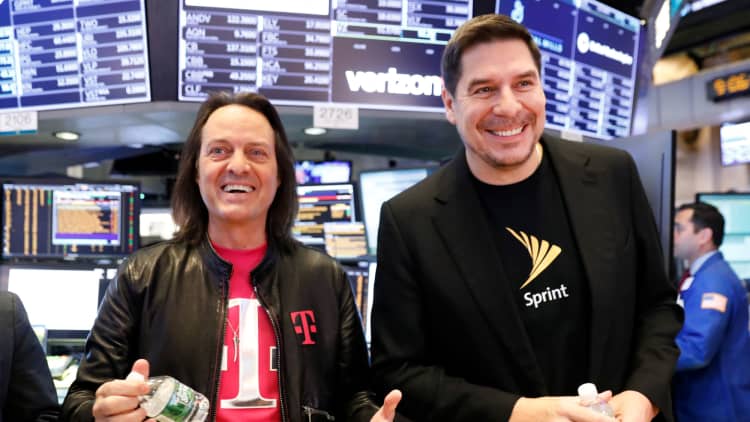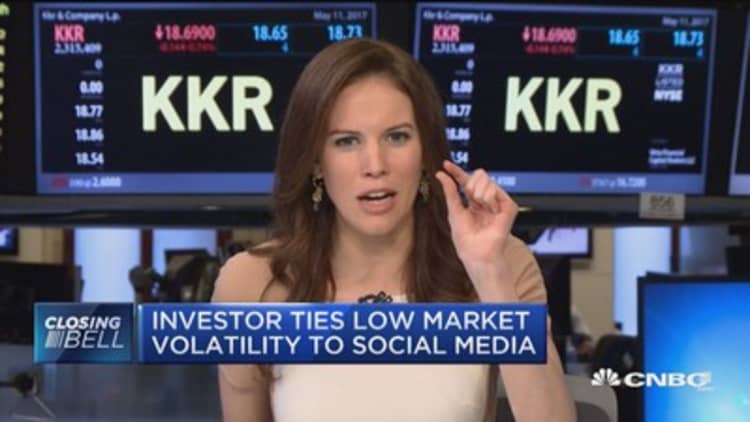
An obscure wireless industry deal from last year can help explain why T-Mobile and Sprint finally agreed to merge this week after years of flirting with a deal.
Last May, Verizon signed a deal to buy a company called Straight Path for more than $3 billion. If you remember the deal, it's probably because AT&T and Verizon battled back and forth for the company in an insane bidding war. After a series of bids and overbids, Verizon ended up paying $184 per share for Straight Path, which had been trading at around $30 per share. The merger was completed this February.
Verizon and AT&T both wanted Straight Path for the rights it owned over certain parts of the wireless spectrum -- specifically, something called millimeter wave frequencies. The two largest U.S. wireless providers believe owning this spectrum will be helpful as they build out 5G wireless networks, which could provide speeds about 100 times faster than the current 4G networks.

According to people familiar with the sale process, T-Mobile really wanted Straight Path too. But once it saw the bidding war break out between AT&T and Verizon, it decided it wasn't going to win and dropped out of the bidding.
T-Mobile has a market capitalization of about $51 billion. AT&T and Verizon both have market caps of about $200 billion, and AT&T is trying to get even bigger with its $85 billion pending deal for Time Warner. Sprint's market valuation is about $22 billion, and it's 85 percent owned by Japanese tech giant SoftBank.
"We've looked at our spectrum positions and decided this was the right time to put these companies together," Sprint CEO Marcelo Claure said in an interview Monday.
The Federal Communications Commission is auctioning off two more bands of millimeter wave wireless spectrum this year -- 1.55 gigahertz of spectrum in two bands known as 24 GHz and 28 GHz.
Straight Path showed Sprint and T-Mobile what to expect in these auctions -- as separate entities, they were going to have a very difficult time competing with Verizon and AT&T for 5G spectrum. But the financial firepower from a combined balance sheet could give them a chance to challenge the two largest wireless players.
Why Masa finally did the deal
The Straight Path deal was one of the factors that pushed the companies to jump-start 2017 negotiations. Those negotiations ended up failing, but several things have happened in the past few months to bring SoftBank's Masayoshi Son back to the table.
First, the two companies' stock prices settled, making the valuation of both companies more transparent. In a stock-for-stock merger, the stabilizing of the share prices, without as much premium built in from imminent M&A speculation, helped convince both sides of their relative values, said two people familiar with the deal.
Second, both Sprint and T-Mobile now believe AT&T and Verizon could roll out 5G in select U.S. cities as soon as later this year. The 2018 Winter Olympics in South Korea already debuted 5G technology, although handset technology won't bring 5G to the U.S. en masse until 2019.

Third, the cable giants are coming: Comcast has entered the mobile market, and Charter is also working on a mobile service. While the cable companies use Verizon's network, they'll increasingly sell and market wireless services with existing TV, phone and broadband, creating a fully bundled product for customers. Comcast said earlier this year its Xfinity Mobile service already had 380,000 customers in less than a full year on the market.
Back in February, T-Mobile CEO John Legere called Comcast's mobile service "very irrelevant" and said Charter's mobile service would be "irrelevant squared."
"The furthest thing from my mind is any concern about the impact of cable," Legere said.
Expect his tune to change as Sprint and T-Mobile try to sell regulators on deal, which will hinge on whether the companies can truly compete in a 5G world.
And while the two companies will argue about the importance of staying ahead of China on 5G development, the fact is no one really knows what 5G means. That could help Sprint and T-Mobile convince regulators they need to merge, if 5G is seen as the pot of gold on the other side of the rainbow. But it's also a convenient focus instead of the $43 billion in synergies that will come with a deal, which will almost certainly come with some job losses.
Disclosure: Comcast is the owner of NBCUniversal, parent company of CNBC and CNBC.com.



